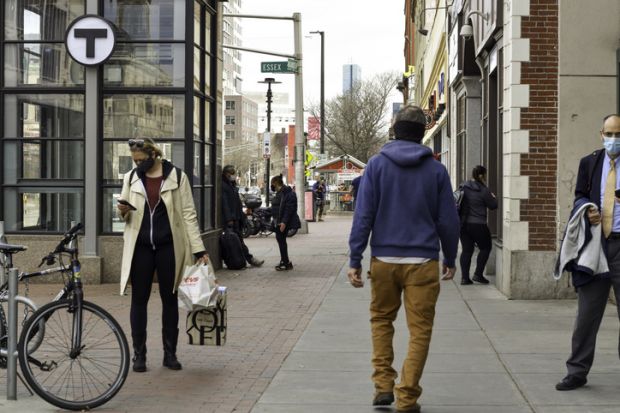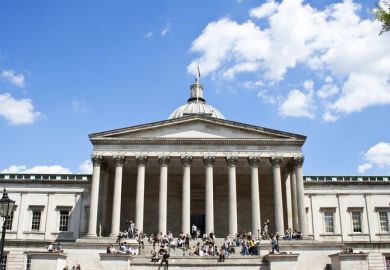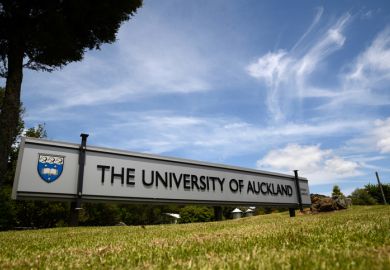Mandatory vaccinations and making students wear face coverings appear to bring Covid transmission in university classrooms down to virtually zero, according to a large US study.
The study, by Boston University (BU) researchers, involved more than 140,000 in-person class events during the autumn 2021 semester at the 33,000-student urban institution. It included more than 600,000 Covid tests and found only nine instances of even potential in-class transmission, or about 0.0045 per cent of all classroom meetings.
That outcome offers “solid evidence that the disease mitigation events used by BU limited transmission in the classroom”, said John Connor, an associate professor of microbiology at Boston and lead author of the study published in JAMA Network Open.
Dr Connor’s team also used genomic data to assess disease linkages, and through that, it concluded that none of the nine possible instances of transmission occurred in a classroom.
The finding, however, comes as most US universities, including Boston, have ended mandatory mask requirements, reflecting popular sentiment across wider US society. Many colleges and universities, including Boston, will, however, still require vaccinations for the coming academic year.
At the time of the Boston study, in the 2021 autumn semester, the private university used mitigation strategies beyond in-class masking and vaccinations, including regular surveillance testing and enhanced air filtration. Faculty were allowed to remove their mask during lectures if they stayed six feet (1.8m) from students and accepted increased levels of surveillance testing.
Boston has been among the more aggressive US institutions in terms of taking steps to reduce the spread of Covid. Back in April 2020, as the pandemic was just becoming a regular part of life, it led US higher education in anticipating that its autumn 2020 term would remain largely online, for what turned out to be the final semester before vaccines became available. The rest of US higher education mostly followed suit in sticking with online options that autumn, though with a wide range of approaches across the country.
A co-author on the JAMA paper, Hannah Landsberg, who also serves as an associate director of student health services at Boston, acknowledged that the campus’ mask mandate ended in May. She noted, however, that the study period involved the Delta variant of Covid. The more common variant now, Omicron, is understood to spread more easily but cause less severe disease.
While masks were no longer required, the university was monitoring the spread of Covid closely, and anyone concerned has the option to wear a mask, Ms Landsberg said. “We feel comfortable with the mask mandate lifted,” she said.
A separate study just issued by the National Bureau of Economic Research (NBER), ahead of peer-reviewed publication, credits US universities with saving lives in their local communities by moving quickly to require vaccines once they became available.
Fewer than 700 US colleges and universities required Covid vaccines in the autumn of 2021, and the NBER team estimated that those institutions saved about 7,300 lives – or about a 5 per cent reduction from what otherwise would have occurred.
Despite the easing of many Covid-related restrictions in educational settings and elsewhere in the US, the virus continues to spread. Most of the US population lives in a county that the federal government rates as having a high presence of the disease. Deaths nationwide from the disease remain around 400 a day.
Register to continue
Why register?
- Registration is free and only takes a moment
- Once registered, you can read 3 articles a month
- Sign up for our newsletter
Subscribe
Or subscribe for unlimited access to:
- Unlimited access to news, views, insights & reviews
- Digital editions
- Digital access to THE’s university and college rankings analysis
Already registered or a current subscriber? Login








